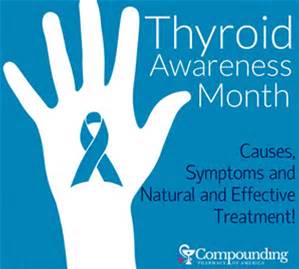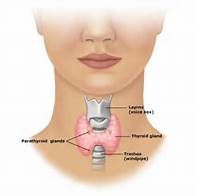

There is an alarming number of people in America that have issues with their thyroid, in fact it’s a huge number, around 59 million people suffer from a thyroid problem. A thyroid handles your metabolism and is a gland located in the neck area. It can have huge negative affects on your health if it is not treated properly. Many people aren’t even aware that they have any symptoms that are connected with a thyroid; but before going into the problems lets first talk about what the thyroid is.
The thyroid gland is a butterfly-shaped organ located in the base of your neck. It releases hormones that control metabolism—the way your body uses energy. The thyroid’s hormones regulate vital body functions, including:
- Breathing, Heart rate, Central and peripheral nervous systems, Body weight, Muscle strength
- Menstrual cycles, Body temperature, Cholesterol levels & Much more! Did you know this?
How the Thyroid Gland Works:
- The thyroid gland is about 2-inches long and lies in front of your throat below the prominence of thyroid cartilage sometimes called the Adam’s apple. The thyroid has two sides called lobes that lie on either side of your windpipe, and is usually connected by a strip of thyroid tissue known as an isthmus. Some people do not have an isthmus, and instead have two separate thyroid lobes.
- The thyroid is part of the endocrine system, which is made up of glands that produce, store, and release hormones into the bloodstream so the hormones can reach the body’s cells. The thyroid gland uses iodine from the foods you eat to make two main hormones:
- Triiodothyronine (T3)
- Thyroxine (T4)The hypothalamus senses low circulating levels of thyroid hormone (Triiodothyronine (T3) and Thyroxine (T4)) and responds by releasing thyrotropin-releasing hormone (TRH). The TRH stimulates the pituitary telling it to produce thyroid-stimulating hormone (TSH); releasing it in the blood.
- It is important that T3 and T4 levels are neither too high nor too low. Two glands in the brain—the hypothalamus and the pituitary communicate to maintain T3 and T4 balance.
- When T3 and T4 levels are low in the blood, the pituitary gland releases more TSH to tell the thyroid gland to produce more thyroid hormones. If T3 and T4 levels are high, the pituitary gland releases less TSH to the thyroid gland to slow production of these hormones. The thyroid cells take up iodine with and are able to store it up in great quantities. T3 and T4 travel in your bloodstream to reach almost every cell in the body. The hormones regulate the speed with which the cells/metabolism work. For example, T3 and T4 regulate your heart rate and how fast your intestines process food. So if T3 and T4 levels are low, your heart rate may be slower than normal, and you may have constipation/weight gain. If T3 and T4 levels are high, you may have a rapid heart rate and diarrhea/weight loss.

